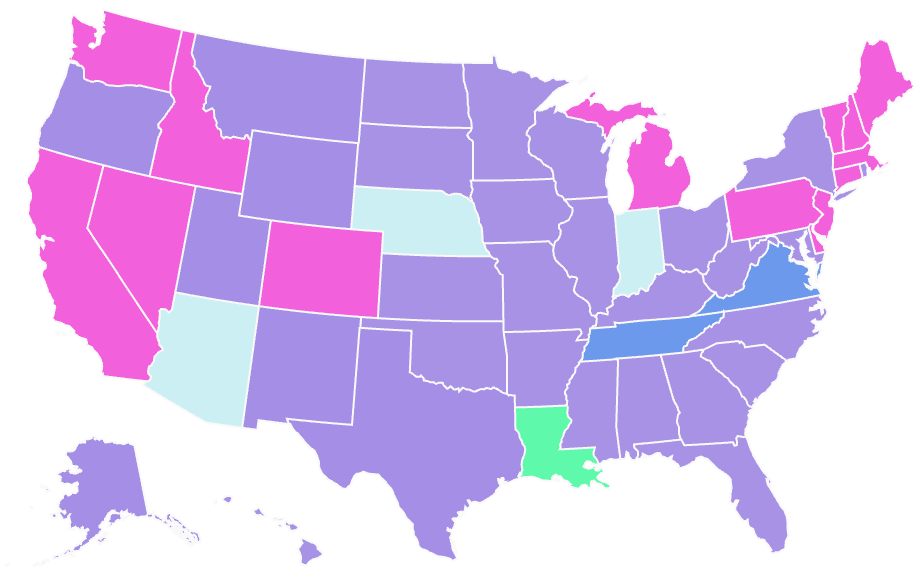- "Purple" States
This category is a bit of a patchwork. Surrogacy is allowed, but the rules can shift depending on factors like where the birth takes place or the specific arrangement. Some areas within these states are more favorable than others.
State-By-State Surrogacy Law & Statutes
In What States is Surrogacy Legal?
> Louisiana
What if I Live in a State Where Surrogacy is Illegal?
Do I need Help from a Reproductive Lawyer?
Yes. Enlisting the help of a reproductive lawyer is extremely important. Intended parents often turn to surrogacy attorneys for help navigating the gestational surrogacy journey, including how to approach surrogacy legality in all 50 states, and obtaining parentage rights by a court parentage order.
A surrogacy law team like the one at Creative Family Connections can:
- Prepare and negotiate a surrogacy contract; if you are the surrogate, your attorney will review the agreement with you and negotiate terms on your behalf.
- Provide detailed guidance throughout every step of the surrogacy process, consistent with legal and ethical parameters. As the delivery approaches, the intended parents’ lawyer will prepare a power of attorney between the surrogate and the intended parents so that all goes smoothly at the hospital. In addition, the attorney will negotiate a comprehensive birth plan with the hospital for the surrogacy delivery
- Help you obtain essential parentage orders and parentage documents
Important Notes About the Surrogacy Map and State Information
The interactive map displayed on this page is a visual guide designed to help intended parents, surrogates, and their supporters understand how surrogacy is viewed in different states across the U.S. It reflects information compiled from public sources and observed practices, but it is not a substitute for doing your own homework. Laws are subject to change, and what happens in courtrooms doesn’t always match what’s written in the statutes.
This resource is meant purely for educational and planning purposes. Carrying Dreams does not claim ownership over any third-party legal summaries or databases and does not replicate proprietary tools. The color-coding and labels on this map are original to our site and intended to simplify a complex legal landscape—please use them as a starting point, not the final word.
Please note: This content is not intended to serve as legal, medical, or professional advice. It’s simply one piece of the broader picture as you explore surrogacy across state lines.

